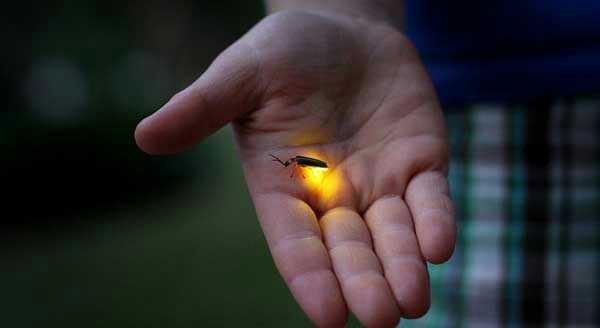
The light produced by this firefly (Photinus pyralis) is a type of non-hot light which is also called bioluminescence. This is caused by a chemical reaction in which the luciferin substance oxidizes when there is a luciferase enzyme. That light is a photon that emits when the chemical oxidizes to produce a high energy state, which then switches back to its normal state.
The light itself is controlled by the nervous system and takes place in special cells called photocytes. The nervous system, photocytes, and end organs of the trachea control the level of blinking from the light. The air temperature also has a connection with the level of blinking. The higher the temperature, the shorter the blinking interval, eight seconds at 18.3 ° C and four seconds at 27.7 ° C.
Scientists do not yet believe why this flickering light occurs. This rhythmic flicker can be a means of pulling prey or allowing these fireflies to find their partner with a signal in the heliographic code (which differs from one species to another), or it can also function as a warning signal.